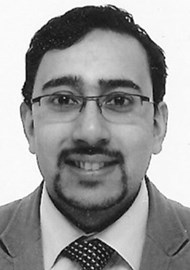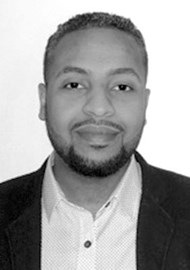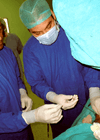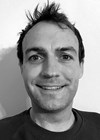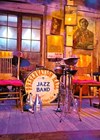The EAU’s 12th European Urology Residents Education Programme (EUREP) was held from 5-10 September 2014. We were fortunate to attend as part of a small contingent of UK urology registrars who had applied and been selected to attend. The programme consisted of a six-day course organised by the European School of Urology (ESU) dedicated towards reviewing the theory and updating urology trainees close to finishing their training (‘final-year residents’) in most of the key areas of urology.
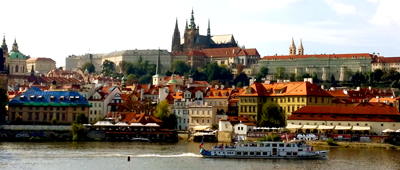
Looking out at Prague castle and the Vltava river.
The programme is held annually at the Clarion Congress Hotel in Prague, Czech Republic and attended by 360 participants from across Europe and beyond. Most of the UK registrars who attended were either about to do their FRCS MCQ in January or had completed the FRCS MCQ and were about to do the viva in November. Around the FRCS is probably the best time to attend such an event as it provides a good theoretical overview especially on clinical material which is particularly relevant to the viva.
The participants were allocated to five different groups which in turn rotated through the five different modules of the programme:
- Urological cancer – testicular, penile, urothelial and renal.
- Prostate cancer and BPH.
- Andrology, stones and upper tract urology.
- Functional urology.
- Paediatric urology, trauma and infection.
Each module consisted of one day’s worth of teaching delivered by a very motivated faculty from across Europe, all of whom were picked for their enthusiasm for teaching, high level of expertise in their field and of course excellent standard of English! The sessions did not consist purely of didactic lectures but were instead highly interactive with opportunities to discuss and debate contentious areas as well as gather opinion on differences in practice at different centres across the home nations of the various delegates. While the EAU Guidelines were used as the standard point of reference, faculty members would routinely discuss the publications and evidence behind the guidelines as well as elaborating on alternative views.
“The sessions did not consist purely of didactic lectures but were instead highly interactive with opportunities to discuss and debate contentious areas as well as gather opinion on differences in practice.”
As most of the delegates were preparing for their own national exit exams such as FRCS, EBU, etc. the discussion was aimed at this level and it was generally expected that you would have done some reading prior to the course. Overall the sessions had a dynamic feel combining the best aspects of a group tutorial with a conference-type ‘update’ session or masterclass. All this was further enhanced by excellent conference facilities in a top-notch conference hotel venue.
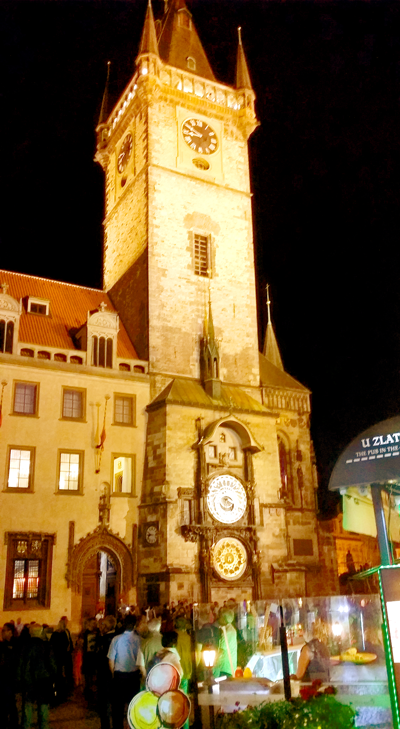
The Prague astronomical clock.
We were pleased to note that a number of UK-based faculty members featured prominently ensuring that the content was highly relevant to UK registrars. It should be noted that all elements of each session are rated by participants and reviewed each year. To maintain high quality, faculty members are replaced every few years, with a few new trainers added each year to enable ‘new-blood’ whilst trainers with experience of previous EUREP courses show them the ropes. Every year each trainer receives scores and detailed feedback from trainees which helps the organisers work around the needs of trainees as well as ensuring that the standard of teaching is kept very high. Maintaining the high standard of the programme is of paramount concern to the organisers and from of our point of view this was certainly achieved with all the UK participants giving the course a big thumbs up!
While the teaching modules formed the core of the programme, there were also a number of hands on training (HOT) sessions on laparoscopy and different types of transurethral resection which gave the opportunity to not only practise and improve skills but also learn tips from experienced mentors. Again the faculty members for these HOT sessions are carefully selected from several centres of excellence (and indeed are not the same as the faculty for the teaching modules). As part of the HOT sessions, there was also the opportunity (for those who wished) to take the European training programme in Basic Laparoscopic Urological Skills (E-BLUS) assessment exam.
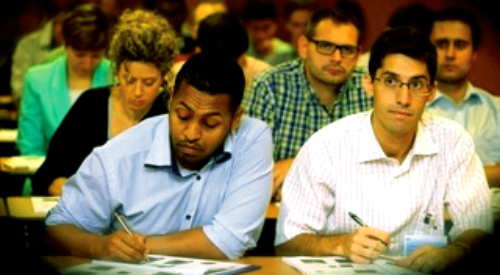
Delegates listen attentively during one of the lectures.
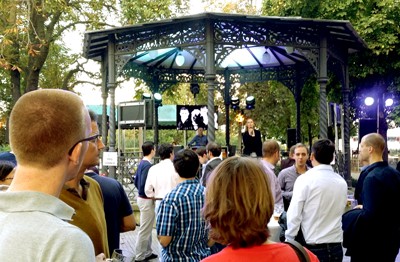
Getting ready for Karaoke!
Of course, EUREP wasn’t all about work and study! There was a big social element to the gathering of delegates too and it was a clear aim of the organisers to help facilitate understanding and break down barriers between urologists from the different European nations. To that end, there were lots of opportunities during breakfast, lunch and coffee breaks (with a fabulous selection of drinks, cakes, fruits, etc.) to allow delegates and faculty to get to know each other and have discussions in an informal environment. There was also an opening reception buffet and meals organised by faculty members for different nations. The social highlight was an open air barbeque and karaoke night organised at Letensky Chateau which gave everyone a chance to let their hair down at a fabulous venue in central Prague with as much food and drink as you could manage! Delegates formed various national teams to compete on the outdoor karaoke stage with the EUREP faculty team putting on a particularly memorable performance; video footage has unfortunately been embargoed indefinitely!
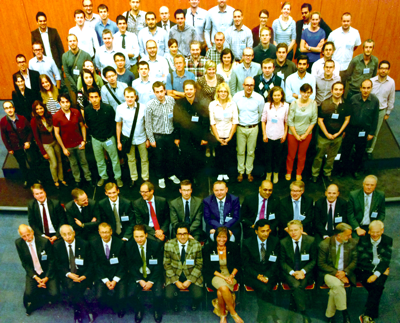
Delegates and faculty.
If all this wasn’t enough to highlight the sheer quality of the programme that the EUREP organisers have put together then it was worth us saving the piece de resistance until last. The entire programme is funded by the EAU! This includes: free accommodation in the four-star Clarion Congress Hotel, free breakfast and lunch each day, free registration to the teaching programme and HOT sessions. It’s safe to say that we have never come across a course that tries to do so much for urology residents while asking for so little.
Perhaps our only disappointment was to see that the number of registrars attending from the UK or Ireland was relatively small compared to other large European nations such as Germany, Spain, Holland, etc. some of whom sent almost three times as many delegates. It is our understanding that this is largely due to a failure of UK registrars to apply for the course; hopefully this article will encourage others to apply in the subsequent years and lead to a bumper attendance of UK urology registrars at EUREP in the future!
If you are interested in applying, the programme usually takes place in early September and registration closes on the 1 May on the year of each programme. To register, visit http://eurep2015.uroweb.org/
You also need to be:
- An EAU member (a bargain at 50 euro per year as it gives you complimentary registration to the annual EAU congress too).
- Be near to the end of training (ideally final year but that’s not mandatory and they know that a lot of UK residents take their exam in the penultimate year).
- Complete some MCQs from the European Urology journal to get CME credits (this is a new requirement).
- Have English skills (not usually a problem for UK and Irish doctors…).
They have a limited number of places (360) but the organisers try to maintain a good geographic spread of candidates and as mentioned, UK registrars have previously been underrepresented so for those that apply, at the current time the probability of getting on is high. Nonetheless, the earlier you apply, the more likely you are to be accepted.
Declaration of competing interests: None declared.


